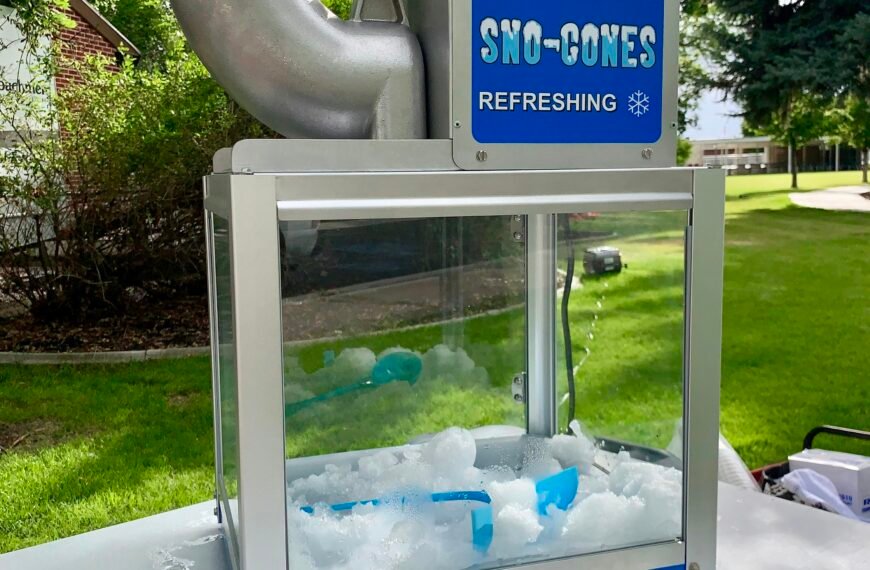Introduction to the Nissan K24 Propane System
The Nissan K24 propane system represents a significant advancement in automotive fuel technology, designed to optimize performance while prioritizing environmental sustainability. As the automotive landscape evolves, propane is gaining recognition as an efficient alternative to traditional gasoline and diesel fuels. Propane, or liquefied petroleum gas (LPG), is noted for its lower carbon emissions compared to conventional fuels, making it an attractive choice for both manufacturers and consumers who are increasingly concerned about environmental impacts.
This system utilizes a specific sensor known as the Nissan K24 propane system sensor, which plays a critical role in ensuring efficient operation. The sensor continuously monitors various parameters, including fuel mixture and temperature, to optimize the combustion process. This not only enhances engine performance but also improves fuel efficiency, allowing vehicles to operate cost-effectively. With fuel prices on the rise, the appeal of propane systems has grown, as they enable savings on operational costs and reduce dependence on fluctuating gasoline prices.
How the Nissan K24 Propane System Works
The Nissan K24 propane system is an essential component that enables vehicles to run efficiently on liquefied petroleum gas (LPG). This innovative system contains several critical components, each designed to optimize performance while providing a reliable fuel source. Central to the operation of the system is the LPG tank, which stores the propane in liquid form under pressure. This storage facility ensures that there is a constant supply of fuel available for conversion and combustion.
Once fuel is required, it flows from the LPG tank to the vaporizer. This vital component is responsible for converting the liquid propane into vapor. The vaporization process occurs as the liquid propane passes through the vaporizer, where heat is applied, allowing the liquid to change state efficiently. The newly formed vapor is then directed towards the fuel injectors, which accurately deliver the propane mixture into the engine’s intake manifold.
Another essential element in the Nissan K24 propane system is the pressure regulator. This component maintains the proper fuel pressure throughout the system, ensuring consistent delivery to the engine. By regulating the pressure, the system avoids potential flooding or lean conditions, both of which can detrimentally impact performance, fuel efficiency, and emissions control.
As the propane vapor enters the combustion chamber, it mixes with air before ignition. This mixture promotes effective combustion, which ultimately translates to enhanced engine performance. Each component of the Nissan K24 propane system plays a pivotal role in this process, working cohesively to ensure the engine operates efficiently and reliably.
Through careful integration and interaction among the LPG tank, vaporizer, fuel injectors, and pressure regulator, the Nissan K24 propane system optimizes the use of propane fuel, providing drivers with an environmentally friendly alternative while maintaining the desired performance standards.
Key Sensors in the Nissan K24 Propane System
The Nissan K24 propane system is enhanced by a variety of sensors that play pivotal roles in ensuring efficient operation and optimal engine performance. Among these, the fuel pressure sensor is critical; it monitors the pressure of the propane fuel as it enters the engine. Accurate readings from this sensor are vital for the engine’s electronic control unit (ECU) to adjust the fuel flow appropriately, ensuring that the engine receives the right amount of fuel for combustion. Variations in fuel pressure can lead to performance issues, emphasizing the importance of this sensor in maintaining the efficacy of the nissan k24 propane system.
Another essential component is the temperature sensor, which assesses the temperature of the propane and the engine. Proper temperature regulation is crucial since both excessively high and low temperatures can adversely affect engine performance. By relaying temperature data to the ECU, the sensor assists in making real-time adjustments that help to optimize combustion conditions and minimize emissions. Thus, the temperature sensor serves as a critical tool in achieving fuel efficiency and reliability within the nissan k24 propane system.
Furthermore, the oxygen sensor is vital for assessing the levels of oxygen in the exhaust gases. This data is paramount for refining the air-fuel mixture, allowing for precise calibration by the engine management system. A malfunctioning oxygen sensor can lead to poor fuel economy and increased emissions, as it may cause the engine to run too rich or too lean. Therefore, its role in the nissan k24 propane system is not only crucial for performance but also for compliance with environmental regulations.
In summary, the integration and functioning of these key sensors are fundamental to the overall performance and efficiency of the Nissan K24 propane system. Each sensor contributes uniquely to the system’s ability to detect issues, ensure proper combustion, and maintain optimal engine function.
Common Issues with Nissan K24 Propane Sensors
The Nissan K24 propane system is known for its reliability; however, like any automotive system, it may develop certain issues over time, specifically related to its sensors. One of the most prevalent problems is sensor malfunction, which can arise due to environmental factors, wear and tear, or even electrical issues. When sensors fail to function correctly, they can lead to a cascade of operational challenges within the engine.
Another common issue involves inaccurate readings from the propane system sensors. These discrepancies can significantly affect the engine’s fuel-air mixture ratios. As a result, the vehicle may experience reduced performance, leading to lower power output, erratic idling, or difficulty starting the engine. Drivers may notice a decrease in fuel efficiency as the engine struggles to adjust to incorrect sensor data, further compounding the problem.
Symptoms of potential sensor problems in the Nissan K24 propane system can manifest in various ways. For instance, dashboard warning lights related to engine performance may illuminate, signaling that maintenance is required. Additionally, drivers may experience unusual sounds or vibrations as the engine operates outside its optimal parameters. There might also be noticeable changes in acceleration, as hesitation or stalling can indicate an underlying sensor issue.
To ascertain whether the sensors are the culprit, it’s advisable to conduct diagnostic tests when faced with these symptoms. Regular maintenance and checks can prevent sensor-related problems from escalating, ensuring that the Nissan K24 propane system functions smoothly. Timely intervention, when sensor issues are detected early, can save drivers from more significant repairs down the line. By recognizing these common problems, owners can maintain their vehicles better and ensure adequate performance and efficiency.
Maintenance Tips for Nissan K24 Propane Sensors
Maintaining the Nissan K24 propane system sensors is critical to ensuring their longevity and optimal functioning. Regular inspections should be conducted to identify any signs of wear or malfunction. It is advisable to create a routine maintenance schedule, ideally every 3,000 to 5,000 miles or during service intervals. During these inspections, check for any leaks in the sensor connections, as this can lead to inaccurate readings and system inefficiencies.
Cleaning the sensors is another vital aspect of maintenance. Dust, debris, and fuel residues can accumulate on the sensor surface, hindering its performance. A gentle cleaning solution can be used to wipe down the exterior of the sensors; however, take care to avoid damaging any electrical connectors. For deeper cleaning, consult the manufacturer’s guidelines, as they may provide specific products or methods deemed suitable for the Nissan K24 propane system sensor.
It is important to be vigilant regarding the signs that might indicate sensor replacement is needed. This includes a noticeable decrease in vehicle performance, illuminated warning lights on the dashboard, or persistent issues with fuel efficiency. If any of these symptoms are observed, it may be prudent to perform diagnostic tests on the Nissan K24 propane system sensors. Many modern diagnostic tools can pinpoint exactly which sensor is malfunctioning, allowing for targeted repairs and replacements.
Implementing these maintenance tips not only ensures that the Nissan K24 propane system sensors function efficiently but also helps in preventing systemic failures. Proper upkeep allows for a smoother operational performance and can ultimately save costs associated with more significant repairs down the line.
Diagnosing Sensor Issues in the Nissan K24 Propane System
When it comes to maintaining the efficiency of the Nissan K24 propane system, diagnosing sensor issues is crucial. Sensors play a pivotal role in ensuring that the system operates effectively, providing accurate data to the engine control unit (ECU). Consequently, identifying problems early can prevent further complications and costly repairs.
The first step in the diagnostic process involves using specialized tools such as an OBD-II scanner. This device is capable of retrieving trouble codes from the ECU, which can indicate specific sensor malfunctions. For instance, if the propane pressure sensor is malfunctioning, the scanner will reveal relevant diagnostic trouble codes (DTCs), allowing mechanics to focus on the potential issues linked to the specific sensor. In addition, a multimeter can be employed to measure voltage and resistance in the wiring connected to the Nissan K24 propane system sensor, helping to isolate electrical faults.
Mechanics and vehicle owners should also familiarize themselves with basic troubleshooting techniques. This may involve visually inspecting sensor connections for any signs of wear or corrosion that could lead to poor performance. Moreover, evaluating the propane system’s performance can provide crucial context; for example, unusual fluctuations in engine power or unusual fuel consumption may correlate with sensor failures.
Interpreting the data retrieved from sensors also requires a keen understanding of expected operational parameters. For instance, if the temperature sensor readings deviate from normal ranges, it could suggest issues within the propane system, possibly indicating that the fuel mixture is imbalanced or that there’s a leak somewhere in the system.
In conclusion, effective diagnosis of sensor issues in the Nissan K24 propane system involves a combination of reliable diagnostic tools and a thorough understanding of system operation. By integrating these techniques, mechanics and vehicle owners can successfully target and resolve sensor-related problems, ensuring optimal performance of their vehicle’s propane system.
Upgrading the Nissan K24 Propane System
The Nissan K24 propane system can serve as a reliable option for those seeking improved fuel efficiency and reduced emissions. However, like any mechanical system, it can benefit greatly from upgrades that enhance performance, reliability, and efficiency. One of the most significant potential areas for improvement lies within the sensor systems of the K24 model.
Modern sensors play a crucial role in the effectiveness of the Nissan K24 propane system. They monitor various parameters such as fuel flow, pressure, and temperature, ensuring that the engine operates at optimal efficiency. Upgrading these sensors to newer, more advanced models can lead to better responsiveness and accuracy, thereby improving overall engine performance. Upgraded sensors can also help maintain emissions within legal thresholds, which could be beneficial when considering regulations or inspections.
Additionally, replacing outdated technology with contemporary alternatives can enhance the durability of the propane system. For example, incorporating high-quality materials that are resistant to wear and corrosion can extend the lifespan of the components involved. By investing in high-performance sensors, users can benefit from enhanced feedback mechanisms, allowing for real-time adjustments that can fine-tune the engine’s operation.
Moreover, optimizing the electronic control unit (ECU) of the Nissan K24 propane system to work seamlessly with upgraded sensors can significantly improve the fuel management process. This integration enables the ECU to make instantaneous adjustments based on accurate sensor data, thereby increasing both reliability and efficiency.
In conclusion, upgrading the Nissan K24 propane system’s sensors is a viable strategy for enhancing its performance. By investing in advanced sensor technology, users can achieve greater efficiency, better reliability, and ultimately, a more robust fuel management system.
The Future of Propane Systems in Nissan Vehicles
The future of propane systems in Nissan vehicles looks promising, driven by several trends and innovations aimed at enhancing efficiency and accuracy, particularly in relation to the nissan k24 propane system sensor. As global attention intensifies on reducing emissions from transportation, manufacturers are increasingly concentrating on alternative fuels like propane. This shift aligns with evolving regulations that promote cleaner combustion alternatives, potentially positioning propane as a leading solution in the automotive industry.
One significant area of advancement is the development of more sophisticated sensor technologies. The nissan k24 propane system sensor has already set a benchmark for functionality, but ongoing research is expected to yield even more accurate and responsive sensors. Enhanced sensor systems can provide real-time feedback about the vehicle’s performance and fuel efficiency, ultimately leading to improvements in the overall propane system performance. For example, integrating advanced data analytics and machine learning algorithms could allow these sensors to predict maintenance needs, thus reducing downtime and operational costs.
Moreover, collaborations between automotive manufacturers and tech companies are likely to accelerate the innovation cycle. By leveraging expertise from fields such as data science and materials engineering, it becomes feasible to create lighter, more durable components within the propane systems in Nissan vehicles. These advancements not only bode well for efficiency but could also contribute to longer vehicle lifespans and reduced maintenance expenses.
As regulatory pressures mount, particularly regarding greenhouse gas emissions, Nissan’s commitment to propane systems will undoubtedly evolve. The implementation of robust, efficient propane technology will play a crucial role in meeting compliance standards without sacrificing performance or customer satisfaction. By advancing both the nissan k24 propane system sensor and broader propane infrastructure, Nissan is poised to become a leader in sustainable automotive solutions for the future.
Conclusion
In reviewing the intricacies of the Nissan K24 propane system and its sensors, it becomes evident that understanding this technology is crucial for optimal vehicle performance. The Nissan K24 propane system is designed to maximize efficiency while maintaining environmental standards. Through the integration of specialized sensors, the system ensures that the delivery of propane is both precise and efficient, monitoring key parameters to enhance engine longevity and performance.
Throughout this discussion, we highlighted the role of various sensors that are integral to the functionality of the Nissan K24 propane system. These sensors not only monitor the fuel mixture and combustion processes but also provide critical feedback to the vehicle’s computer systems. Regular maintenance and understanding of these components are pivotal in preventing potential issues, which can lead to decreased performance or even system failure. Vehicle owners should prioritize routine checks of their propane system, as well as the sensors seemingly simple, yet essential to the system’s operation.
Moreover, staying informed about advancements in propane technology can significantly benefit Nissan K24 users. Innovations in sensor technology could lead to improvements in efficiency, safety, and overall performance, as manufacturers strive to enhance the reliability of propane systems. Therefore, it is advisable for vehicle owners to engage with the community of users and experts to stay updated on best practices and emerging trends. By being proactive about the maintenance and understanding of the Nissan K24 propane system and its sensors, vehicle owners can ensure a smooth and reliable driving experience.

We publish content to inspire and motivate the new generation.














